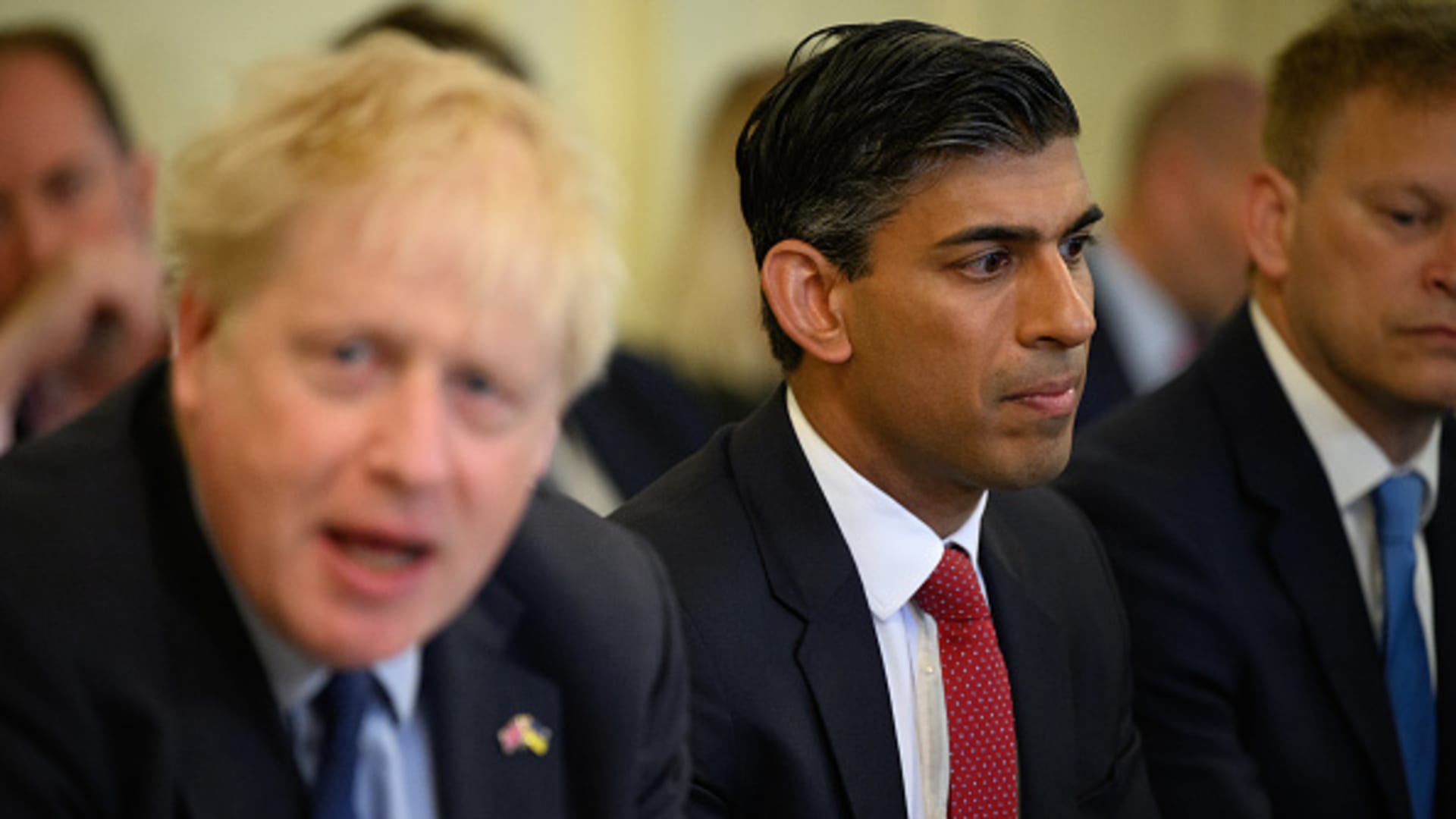Former British finance minister Rishi Sunak won the most votes in the second round of voting.
Leon Neal | Getty Images
LONDON — After 14 years in power, the U.K.’s ruling Conservative Party looks to be standing on the brink of a momentous electoral defeat in the July 4 vote.
In the last few days leading up to the election, Prime Minister Rishi Sunak has tried to put a brave face on his party’s poor showing in the polls — which point to a mammoth win for the rival Labour Party — by saying the result was not a “forgone conclusion.”
While there’s bound to be a reckoning after the election, and some serious soul searching as to where things went wrong, political analysts tend to agree there was not much that Sunak could have done to repair serious damage done by previous leaders in recent years.
John Curtice, one of the U.K.’s most highly-regarded polling experts, put the party’s demise down to two irreparably damaging events in recent years.
“This is not an election about the ideological position of the parties, this is an election about competence,” Curtice told CNBC in the run-up to the vote.
“The reason why we are where we are, is because the Conservatives were dealt a bad hand, but they played it badly.”
Curtice said ‘Partygate,’ the revelation that government officials broke social gathering rules during the Covid-19 pandemic, and the short-lived Liz Truss government of 2022, whose ill-fated economic policies caused market panic, were the origins of the party’s downfall.
“These are the two defining events [of the election], and everything else is variation and embellishment,” noted Curtice, a professor of politics at the University of Strathclyde and senior research fellow at the National Centre for Social Research.
“No government that has presided over a market crisis has survived in the ballot box. It is a death knell,” he added.
“And meanwhile, in this case, you’ve got a government that’s ditched not one but two prime ministers and one of them [Boris Johnson] was because of his devious relationship with the truth, something that the Conservative Party has never been willing to acknowledge.”
Scandals and mismanagement
‘Partygate’ was the name given to the scandal that erupted when it was revealed that government officials, including then-Prime Minister Boris Johnson, had attended lockdown-breaking parties and gatherings in both private residences and workplaces during the Covid-19 pandemic.
Johnson resisted calls to resign before finally doing so in June 2022. An inquiry later concluded that Johnson had deliberately misled parliament over lockdown parties although the former prime minister had vehemently denied doing so. Sunak dodged questions over whether he agreed with the findings.

Johnson was replaced by Liz Truss who, along with her then-Chancellor Kwasi Kwarteng, instigated a market meltdown by announcing a radical tax-cutting budget that roiled bond markets and sank the pound.
One British tabloid newspaper ran a livestream of an iceberg lettuce next to a framed photograph of Truss, asking which one would have a longer shelf-life. The lettuce won when Truss reluctantly resigned after only 50 tumultuous days in office.
Britain’s former Prime Minister, Liz Truss speaks at the ‘Great British Growth Rally’ event on day two of the annual Conservative Party conference on October 2., 2023 in Manchester, England.
Carl Court | Getty Images News | Getty Images
Curtice said voters had not forgotten “Partygate” or Truss’ disastrous and short-lived premiership, and these were likely to be significant, influential factors when voters go to the polls on Thursday.
“Basically, the electorate are voting against this government because they think they screwed up and they regard the Labour Party not necessarily with enthusiasm, but as ‘oh my gosh, surely they can’t do any worse.’ At least [Keir] Starmer sounds vaguely sensible and very boring. So they’re going to vote for him.”
Both Sunak and Labour Party leader Keir Starmer have been reluctant to point to the polls too much during their election campaigns — the former not wanting to highlight Labour’s consistent lead, the latter not wanting to appear arrogant or create voter complacency. Labour is projected to secure a 20-point lead on the Conservatives, giving the center-left party around 40% of the vote to the Tories’ 20%, according to a Sky News poll tracker.





















Discussion about this post